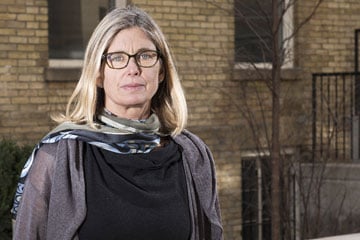The Law Society of Ontario is calling for members to weigh in on a series of proposals that could shrink the number of benchers and phase out some members, according to a report to Convocation from the Governance Task Force released this week.

The Law Society of Ontario is calling for members to weigh in on a series of proposals that could shrink the number of benchers and phase out some members, according to a report to Convocation from the Governance Task Force released this week.
The law society is considering changes that could include a smaller Convocation size, changing the treasurer’s term, changing the terms and term limits for benchers, the report said.
The report includes several example alternatives to the law society’s current structure, which are premised on the idea that some of the LSO’s “ex-officio” benchers, who already have limited privileges, would be phased out by 2023.
“The Task Force believes that the Law Society can effectively govern without board positions solely based on past leadership, past years of elected service or past service in political office,” the report said.
Convocation, where the law society’s directors meet, now has 90 members: 45 elected licensees (20 lawyers from Toronto, 20 lawyers from outside Toronto and five paralegals), eight lay benchers appointed by the Lieutenant Governor-in-Council of the Ontario government, the treasurer, the attorney general and ex-officio benchers such as former treasurers, life benchers, and former attorneys general up to 2010. Known collectively as “ex-officio” benchers, former treasurers up to 2010 may speak and vote at Convocation, while life benchers, former treasurers after 2010 and former attorneys-general may speak or debate but not vote.
The examples provided by the task force include an example that removes the “ex-officio” benchers, leaving 53 remaining benchers. Another example suggests a total of 40 benchers: 24 elected lawyers (12 inside and 12 outside of Toronto), five elected paralegal benchers, eight government-appointed lay benchers and three LSO appointments. In a third suggestion, there would be elected lawyers (eight inside and eight outside of Toronto), four elected paralegals, three government-appointed lay benchers and seven LSO appointments.
The report also includes suggestions that treasurers take two-year terms or are elected by a “ladder system,” a similar system to what is now used at the Ontario Bar Association. There are also suggestions for shortened bencher terms. The law society will accept comment until Oct. 15.
The August report follows a Task Force report from February that said the LSO’s structure varies “significantly” from other similar organizations and that there were “concerns with respect to the Law Society’s overall governance effectiveness.”










